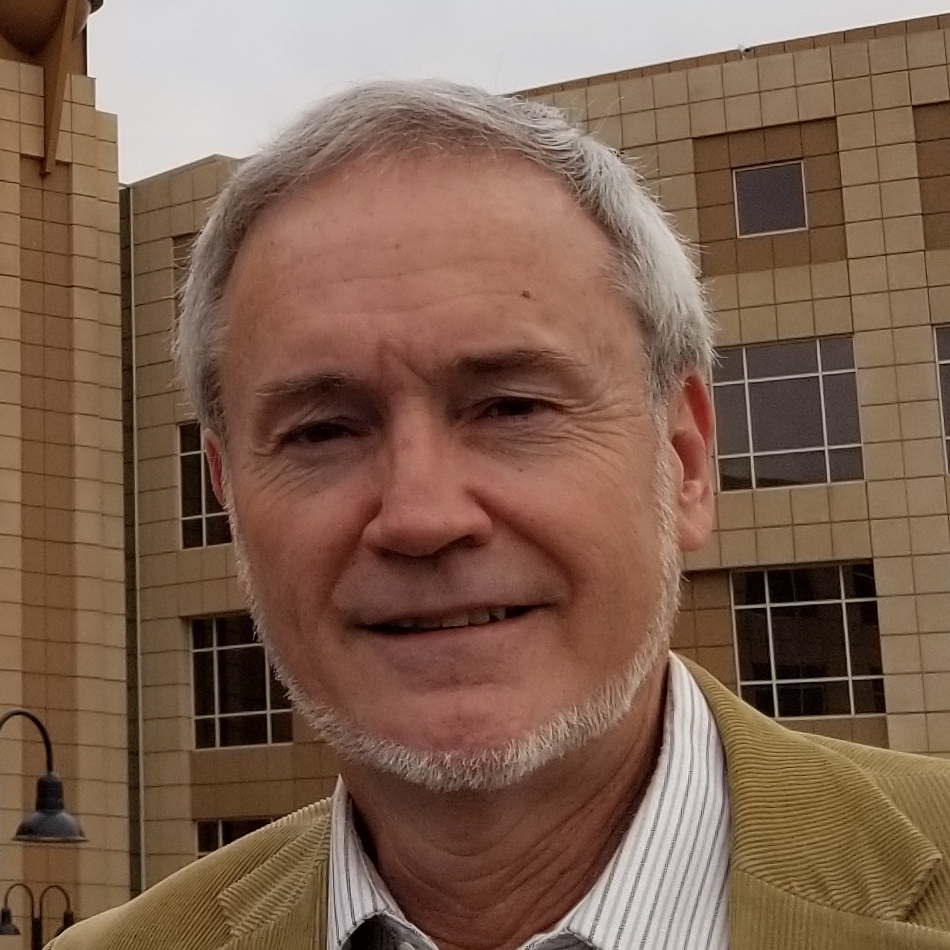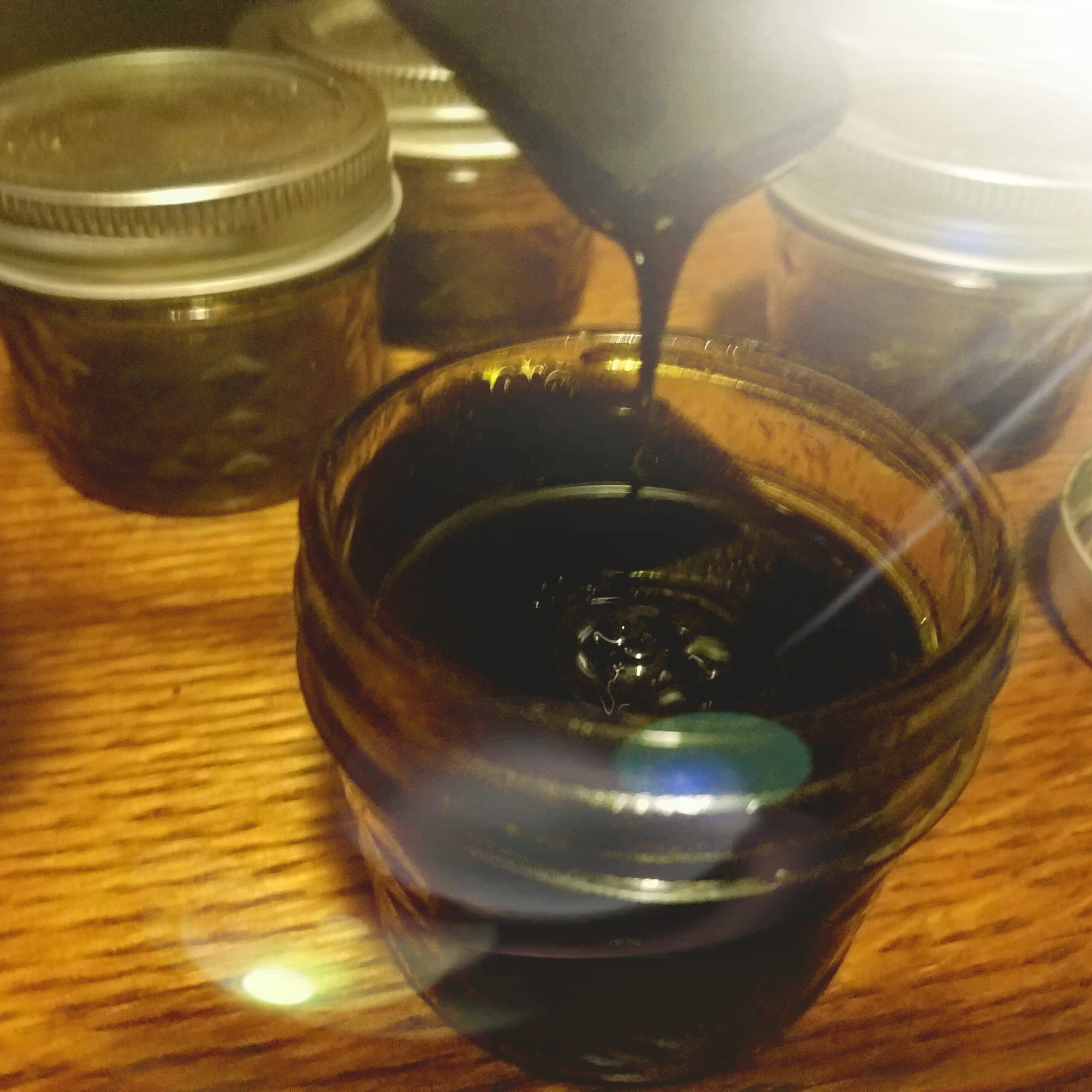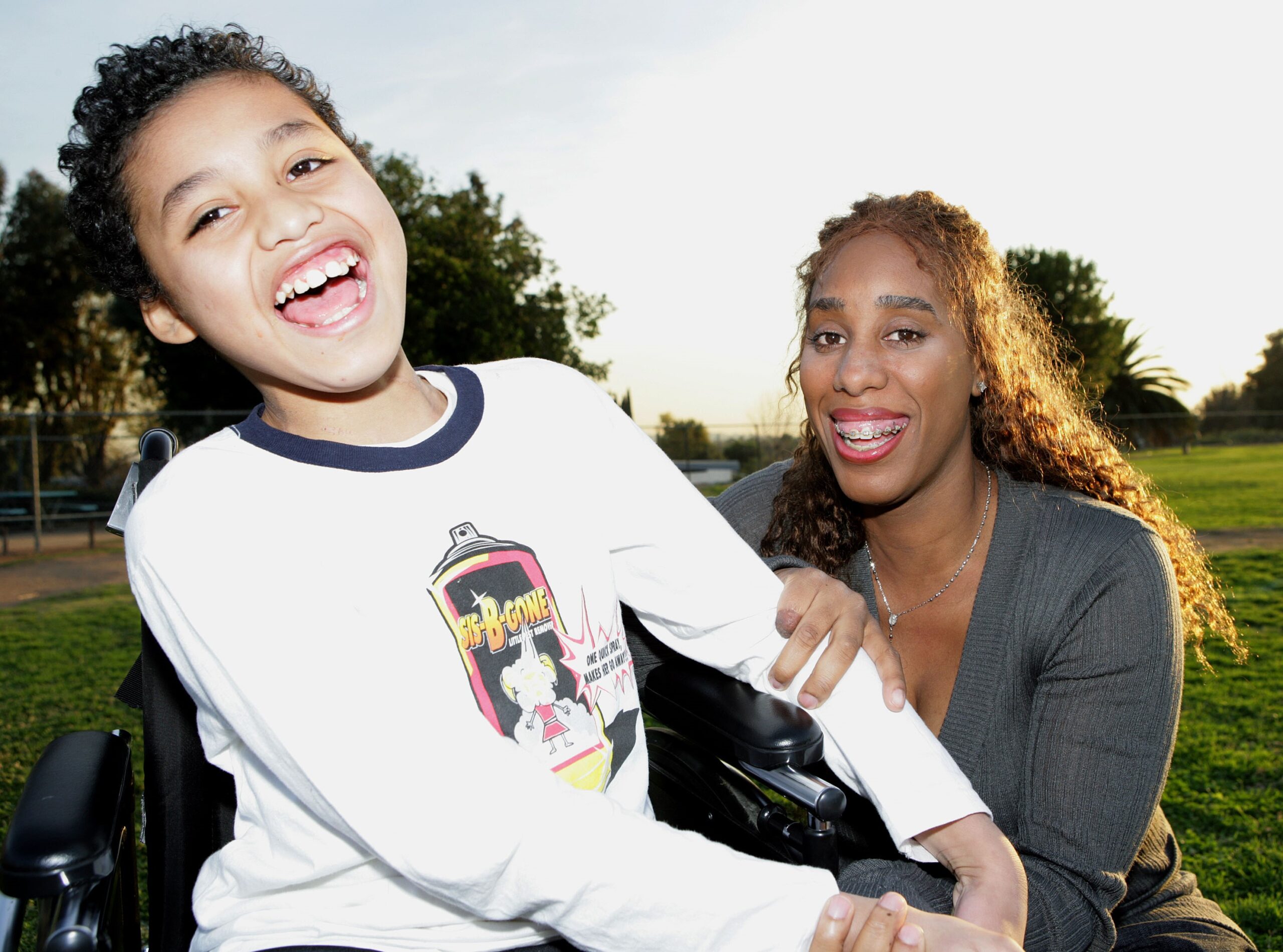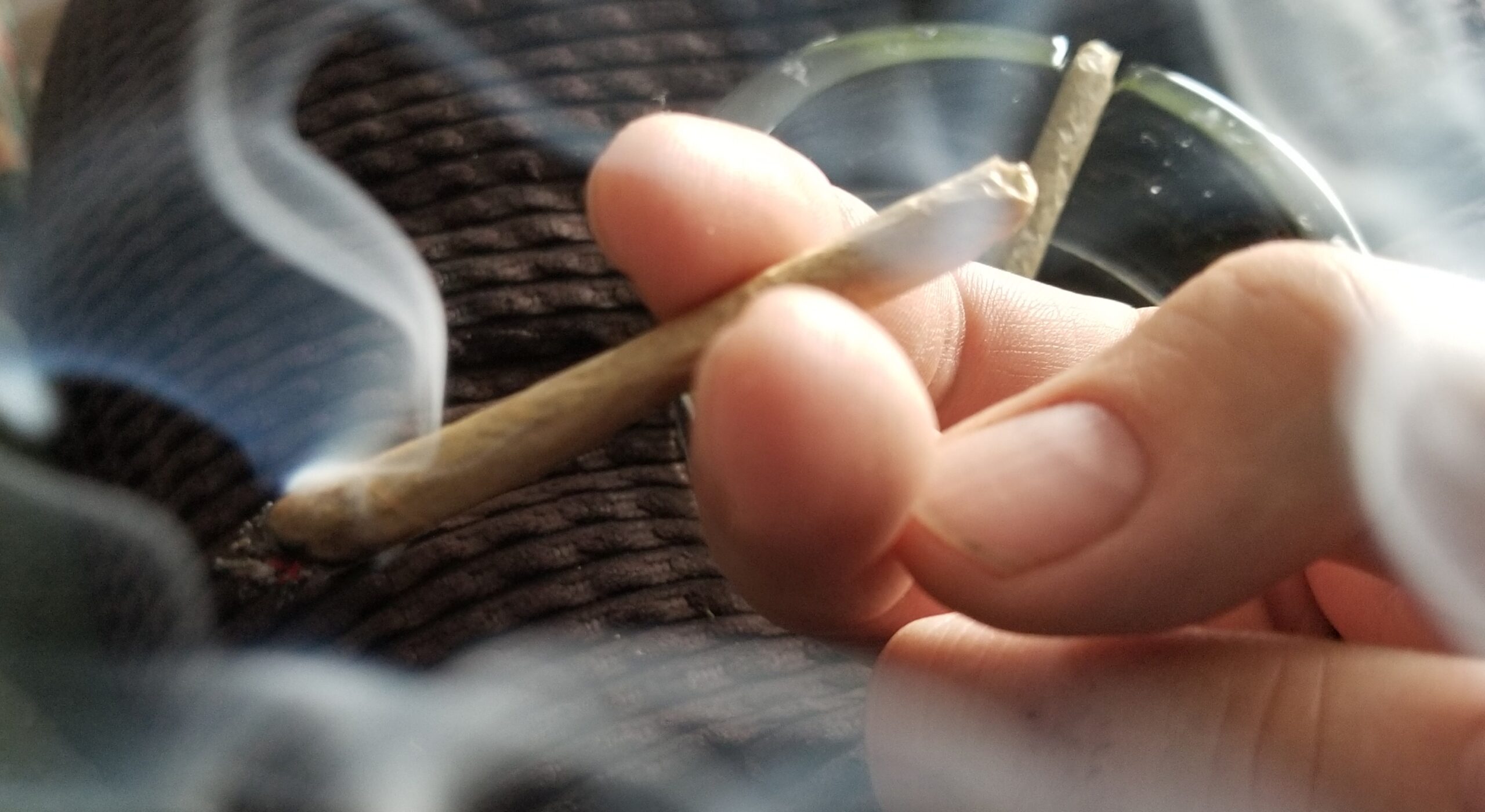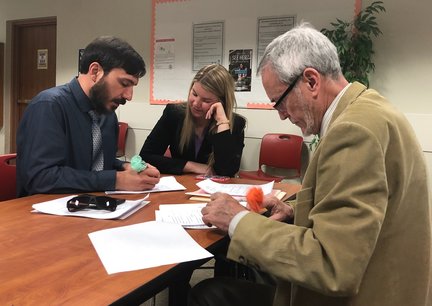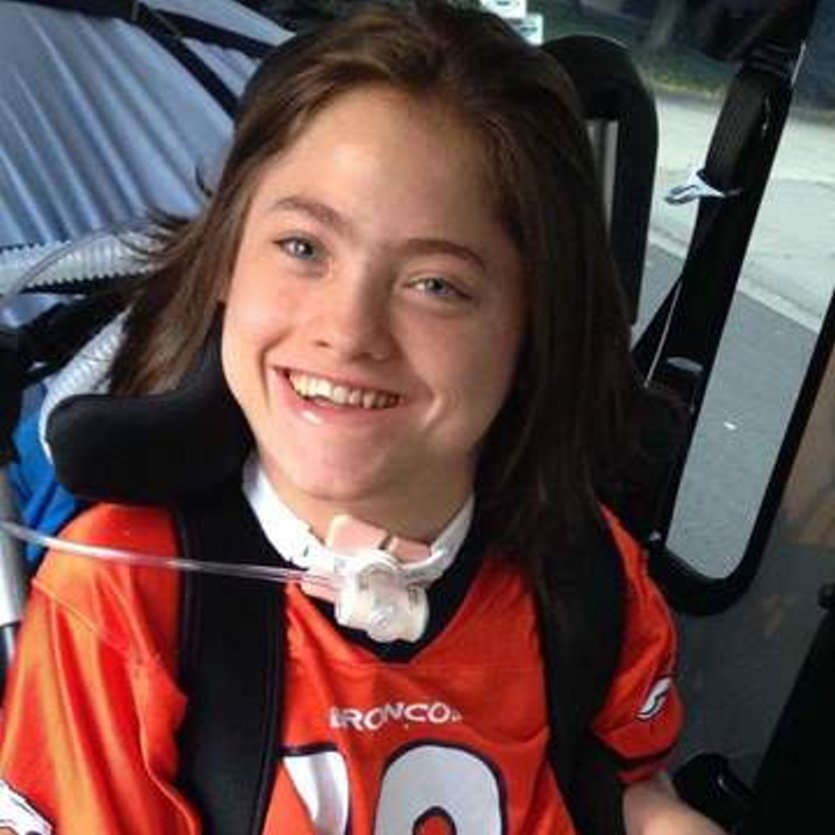By Mark Pedersen
I am a medical Cannabis refugee from Missouri. Based in Colorado, I provide education to patients and caregivers.
As an educator, I have spent the last ten years traveling this nation, interviewing patients who have used Cannabis to effectively treat their chronic or terminal illness. I have also been a Cannabis patient for the last 20 years. I require Cannabis to function. To live.
I began making Cannabis oil, primarily so that I could teach others how to do so. I knew all too well that Cannabis was medicine, not just in the amazing way it has helped me, but in so many others that I have met.
Prior to my present odyssey, I followed a Missouri man with terminal melanoma for three years, Brian Chitwood. I photographed Cannabis oil applied topically, killing the tumors. My interviews with him are available from my YouTube channel, www.cannabispatientnetwork.org.
It was during my learning curve in making Cannabis oil that patients, learning of my work, began coming. Word of mouth spreads quickly among the terminally ill. So, as a caveat to teaching, I began providing oil to some of the most severely disabled and terminally ill. Nova Leigh was my first.
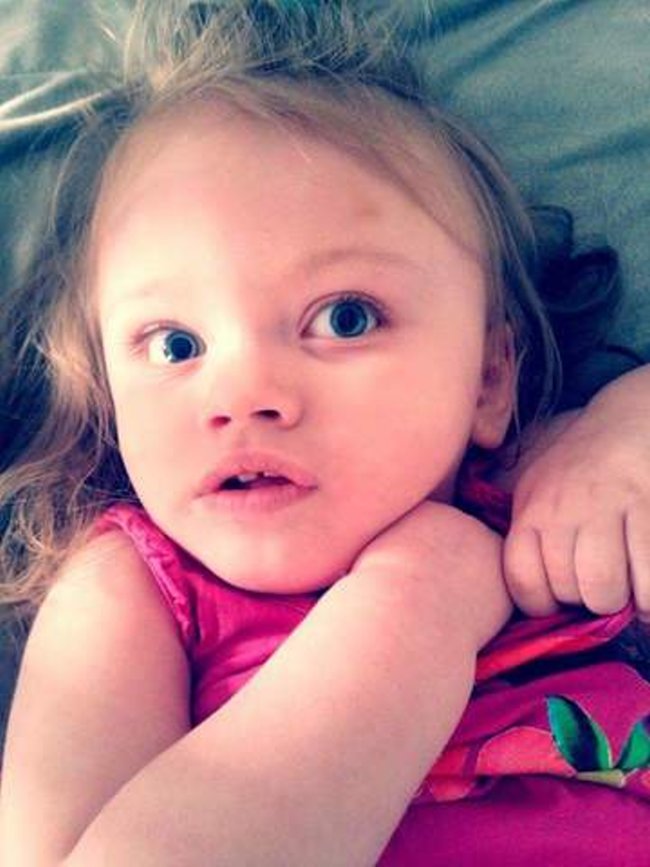
Nova Leigh
Little Nova Leigh was only three when I first heard of her plight. Her young parents did not have much, living in Austin, Texas. They were ill prepared to have a child with a condition like Schizencephaly.
Little Nova had been born with only 24% of her brain. Seizures began not long into her young life. Controlling her seizures quickly became impossible in conventional terms. Specialists came up with only two options. A drug that caused permanent blindness – their defense, Schizencephaly patients have questionable degrees of blindness due to narrowed optic nerves – so they considered blindness to be acceptable.
Their other treatment involved removing two-thirds of her remaining brain – without any promise that the procedure would impact her seizures and knowing full well it may kill her.
This young couple opted to place most of their earthly possessions at the dumpster, loading into the car mostly what was required to care for their disabled child and headed for Colorado. They had no idea how they were going to get medicine for their child, or how they would live.
I was in touch with them almost from the moment that their journey began. Days later, they arrived at our home. We prepared a pediatric regiment of Cannabis oil, roughly one gram FECO (full extract Cannabis oil), per 4 ounces of high grade olive oil.
The mother took this suspension home and drew up a measured infant dose from this suspension.
Immediately following administration through Nova Leigh’s feeding tube, her seizures stopped. What emerged in the weeks and months to come was in all reality the rebirth of this child. Not only did Nova Leigh’s seizures continue to diminish, but her eyes, which once wandered about, seemed to fix on her parent’s faces, following them as they moved. She reached out and touched her father’s beard. Nova began to mimic sounds from her mother. So many things that were thought impossible back when she was in almost constant seizure, now, not only seemed possible, were being realized.
There is a special grace with our small children. Their brains are still developing. Certainly interrupting this process could be catastrophic. This is a concern heralded by child advocacy orgs regarding toxins like pesticides, pharmaceuticals and alcohol – that exposure to these chemicals could interrupt or pervert the process of development among our children. For little Nova, we’ll probably never know what outside force interrupted her development.
But what if? What if we had the means to restart that growth process, while the child still has a chance at some semblance of normality?
Most recently, Nova’s once thought, non-existent Pituitary Gland, is not only present and visible, but working. The doctors can’t explain what they are witnessing, but they cannot deny it either.
It’s been years since I worked with little Nova Leigh. Her parents have gone on to work with other caregivers and to provide for themselves. They have learned a great deal and Nova has continued to improve. She’s a miracle, you see. She’s learning and growing. Nova faces tremendous challenges, but she’s living. Truly.
Nova and her parents have hope, and the assurance that, as the ineffectual pharmaceuticals fall away, Cannabis therapy will continue to provide neuroprotection and the stimulation of new physical and developmental growth.

Gaige
Gaige is a remarkable young man. He’s a refugee from Missouri. A month before his mom and dad packed up their family and moved to Colorado, Gaige was on life-support. He was dying. From an early age, seizures completely altered not only his life but that of his whole family. He couldn’t live a normal life, go to school, or play like other kids.
His parents didn’t know what to expect for their young son. All they knew was that they would have to act quickly if they were going to be able to save his life. Whatever that took, they were committed to meet the challenge. Hearing that Cannabis oil could stop pediatric seizures was all Gaige’s parents needed to hear to move them to Colorado.
Not long after beginning Cannabis therapy, Gaige’s countenance began changing. Today, he looks and acts like any young boy. Only difference, he receives a small pediatric dose of Cannabis oil – a dose that his school nurse called “Incredible” and “therapeutically dosed” due to his seizure control and increased performance in school.
It was a costly thing that Gaige’s mother and father had to do – not every family is as fortunate – uprooting themselves and settling in an unfamiliar and distant place. But their sacrifice brought a remarkable reward.
Now a healthier young man, Gaige’s only regret was that his treatment bound him to within the borders of Colorado and convicted him of being a criminal solely on the basis of his life saving treatment.
He missed his cousins and grandparents but when asked at school what he wanted to do when he grew up, he gave an interesting answer. He said, “I want to make Cannabis oil so other kids get well like me.”
Since I first began this article, Gaige’s parents lost the lease on the property they were renting near Colorado Springs. They were forced, for economic reasons, to return to Missouri. Gaige, though a much different child than the one he was when he left, he faces an uncertain future.
Over the last eight years, I have traveled this nation, meeting and interviewed many people. Over 200 of my video interviews can be found on YouTube – city councilmen, mayors, a governor – Presidential candidate, Gary Johnson – nurses, scientists, but mostly patients.
So many illnesses – impacted by Cannabis, but there is a reason. Most had found medicinal Cannabis independently – like me, early on at least – thought their healing to be a fluke. But it obviously wasn’t a fluke. Cannabis supplements a system we already have in our bodies – our Endocannabinoid System. Healing endogenously – what a perfect way to heal!
Cannabis is nontoxic. Science has overwhelmingly proven that. In fact Cannabis is food. It has been food for humanity for over 25 thousand years – a super-food, more nutritious than flax.
That’s really what gives me the authority to counsel and make cannabis oil for the sick and dying. It’s food.
Hippocrates said so long ago, “Let your food be your medicine and your medicine be your food.”

Isaiah
Little Isaiah wasn’t quite three when his young refugee parents brought him to our home. They were Nebraska natives. Like so many others, they were in hopes that what they had seen on television might be true for their son, too.
Isaiah had suffered multiple kinds of seizures for most of his life. When he was only six months old, a family member with herpes simplex virus kissed him on the mouth. Encephalitis quickly set in. Adult doses of seizure drugs only exacerbated his convulsions. The parents knew they had to do something…anything to stop their child’s seizures. Cannabis was their last and only hope.
Entering our home, it was all the young father could do to carry his flailing son into our living room and sit down. Isaiah was in full seizure. We sat and talked for a little while as we assured the couple that Cannabis posed no hazard for their young child.
The mom asked if she could administer a pediatric dose sublingually while they were there. With poor Isaiah flopping his head from side to side, it was difficult, but mom pressed in with the needle-less syringe and deposited the tincture between his teeth and lip.
Three minutes passed as I observed Isaiah, his eyes rolling about, his arms and head flailing—a near constant experience at this point. But suddenly, he stopped; Isaiah seemed to wake up. Intently, he scanned the room. When his father spoke, Isaiah slowly and matter of factly rotated on his lap and gazed into his father’s eyes. Surprised, his father stammered, “He’s never acknowledged me like that before!” It had been over two years since he’d looked either of his parents in the eyes – because of constant seizures and the dulling anti-epileptic drugs he was prescribed.
In the months that followed, Isaiah continued to grow, exploring a life that is virtually free of seizures, and as importantly, free of the toxic pharmaceuticals that caused so much harm to his tiny body. He began following his mom around the house shouting, “Mommy!” What better evidence is there that Cannabis is good therapy?
In all the excitement over the miracles that we have seen, it would be too easy to forget the most important difference that a holistic therapy like Cannabis has over the toxic treatments offered by conventional medicine. Though we could never guarantee a cure, in virtually every case, we can be assured of improved quality of life. Truly, what good is length of days spent in pain or coma? Quality no doubt trumps longevity.
If we can add but a few days of love and fellowship to these tragically stricken families, then we have indeed done a good thing. Perhaps most of all, is allowing them permission to hope.
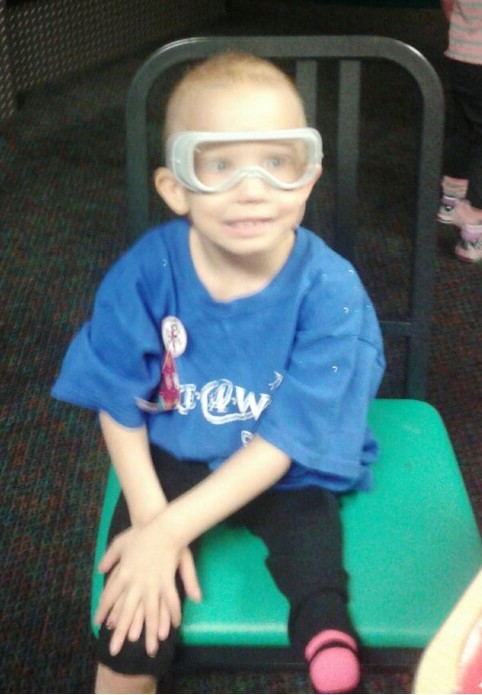
Novalee
I was approached by the parents of another Novalee. This one was a four year old suffering from a very aggressive pediatric cancer. This sweet little girl had already undergone horrific invasive therapies. At one point, surgery claimed most of one leg.
Sitting with the father, he related, “We’re taught to do what our doctors tell us to do. To trust them with our lives. Perhaps I should not have trusted them to do these terrible things to my little girl.”
This little Novalee lost her battle with cancer in July of 2016. I got to her too late. Whether it was the cancer or the invasive conventional therapies that claimed her young life is largely immaterial at this point. The fact is, it didn’t have to end this way. If Cannabis would have been her first option, she might still be alive today. Unfortunately, particularly with pediatric cases, conventional treatments are ALWAYS implemented first.
Immediately following the death of his child, while still in ICU, Novalee’s father passed the remainder of his daughter’s Cannabis oil to another set of parents. In that moment, another little girl, an eleven year old this time with a different invasive cancer, became my patient.
Cassidy
This little lady had more time than Novalee. Her cancer appeared to be slower growing. We might have a chance.
Her parents, throughout her most recent chemo, stayed in an RV parked in the Aurora (Colorado) Children’s Hospital parking lot. How could I say no to a young couple with such a need?
Young Cassidy improved on my oil. So much so, her parents decided to return to Kansas following the conclusion of her last chemotherapy treatment. Unfortunately, a few days after arriving home, Cassidy began having intense migraines. The migraines advanced into coma, and, very quickly, she was gone.
Cassidy had a fast growing, previously undiscovered brain tumor. It ruptured, causing her death.
Very little has prepared me for the loss of life that I have witnessed, not to mention, the loss of so many children. Certainly, few would expect spontaneous recovery in even one of these children, but, where do we draw the line? When do we give up? When faced with parents saying, “You’re our only hope,” How can we not try?
Kandace
Immediately following, as these things do, there was Kandace. Kandace’s parents came from Montana, making a home in Denver to try desperately to save their two year old. When I first heard of Kandace, she had only been given one week to live. I had to act quickly.
I met the father at their apartment. There was a solemn air. Kandace was in a lot of pain. Her mother was laying next to her in the next room. Grandparents, fresh in from Montana, milled about, helping as they could. I could hear the little one whimpering and catch fleeting glimpses of her restless movements as those caring for her passed in and out of the bedroom.
Standing in the kitchen, I demonstrated the process of making coconut oil suppositories. Placing them in the freezer to set, I was confident this articulate young dad would be able to replicate my actions, despite the unimaginable stress he was under.
A few days later, the father texted me that Kandace was doing better. It was promising. Kandace was more active and seemed to be experiencing less pain. A few more days and he texted: “She’s holding her own.” She had made it well beyond the “week” that the doctors had given her.
Then the long pause that I dread so.
Kandace’s father called me. He bravely held his composure as he thanked me for trying to help. They truly believed that the Cannabis oil not only extended her life, but also made her final days more bearable. Kandace passed at home with her family close by.
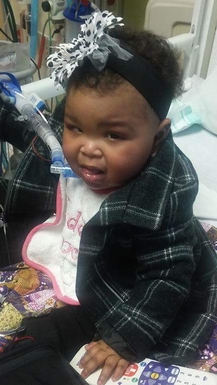
Lyana
Lyana’s father had been in contact with me for over a month before making the trip out from Ohio.
Entering their hotel room, Lyana sat on the floor on a bright patterned quilt. Her mother sat close, watching her carefully. She was fragile. Llyana’s oxygen tube spooled out beside her, her trach quite visible as I bent down to say hello. I was amazed that she was as cognizant as she was. Her mother told me that the little one was being given Oxycodone on demand.
As I began my instruction, the father busily took notes. With a small refrigerator in the room, I had the opportunity to make Lyana’s first few weeks of suppositories while her parents looked on. I made an oral regiment as well. We thought, this would give the parents some time to adjust to making her new therapy – that is – if Lyana HAD time. Since she was already on hospice, time was in short supply.
This precious two year old daughter was stricken with brain and spinal cancer. After Chemotherapy, radiation and surgery, the oncologists said there was no more that they could do. Isaac, the father, said the words that assured my help, “You’re our only hope, now.”
After a brief stay in Colorado, this young family chose to return home. Not long after, I learned of Lyana’s passing. The chances for one so critical, surviving in a state where she’s denied this life saving treatment, well, the odds were most certainly stacked against her.
We cannot guarantee a cure. Without knowing a cause for their cancer, it’s virtually impossible to turn off the mechanism that created it. We cannot even ensure a remission, particularly with these end stage diagnosis’. But in most cases, conventional treatments will be more tolerable with Cannabis oil as an adjunct. Of course, as we have seen, the potential for a miracle is always there, no matter how grave.
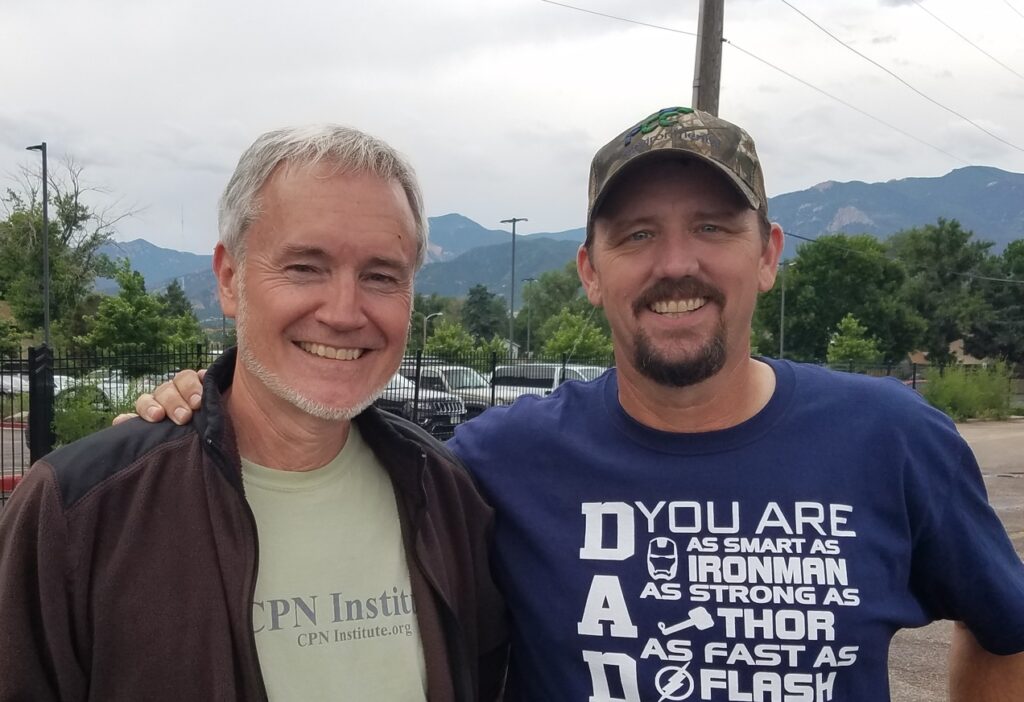
Rocky
Rocky came to me in bad shape. A family man in his 40’s, he had already been battling rectal cancer for a while. Invasive surgeries had already claimed his rectum requiring a colostomy.
Rocky had shoe’d horses for a living back in Texas. Cancer long since took that from him. When he came to me, he was desperate just to live.
Suppositories were not possible because of the invasiveness of his previous surgical procedures. This meant that oral dosing would be the only means of administration. Oral, particularly with late stage cancers, poses the issue of tolerance. The human body can adjust to ever increasing doses of cannabis oil, even very high doses, but it takes time.
The average edible purchased at a dispensary may have 10 to 40 milligrams of cannabis concentrate infused. This amount could be incapacitating for most new to cannabis therapies. Understanding that cancer regiments are normally geared to eventually arrive at 1 gram, or 1000 milligrams, and that oral dosing can be significantly more euphoric. Time is in short supply for most cancer patients.
It was obvious, Rocky had his work cut out for him.
In the months that followed, Rocky improved. First scan showed his tumor had reduced by half. When I later met with him in Colorado Springs, I was so impressed with how healthy he looked. He told me that a couple weeks earlier, he and a friend shoed horses all day. He felt so good, the next day, he shoed horses by himself. He told me that his biggest goal now was to return to work full time.
Two days later, he texted me. His tumor had again shrunk by half.
Rocky faced another challenge – how to continue the maintenance dose that all cancer patients must take indefinitely. Someone must shoulder the financial burden. When families face life threatening challenges to the principle breadwinner, who takes up the slack? Who pays the bills while this needful treatment is executed? And, of course, who provides the oil? Cannabis therapy, of course, is not covered by insurance. For a number of my patients, I have provided what they needed, for as long as I could while here in Colorado. Of course, it would have been unrealistic for me to think that I could sustain any of them for very long. I struggle to meet my own needs.
The hope is that, with some instruction, most can become self-supportive. Sometimes that’s achievable. Unfortunately, even for those who can initially afford the many expenses involved – physical or mental impairment, or the advancement of disease can dash the hopes of even the most committed patient.
Rocky struggled for months trying to pull together what he needed. His family and friends did fundraisers, they produced tee shirts, Rocky even wrote a book. Rocky was a fighter (pun intended). But terminal illness wears on one. Living with the fears night and day.
Accessing FECO where he lived in Texas, even with the support of his community, proved impossible for Rocky. He was forced to resolve himself to conventional cancer therapy. It was that which ultimately claimed his life.
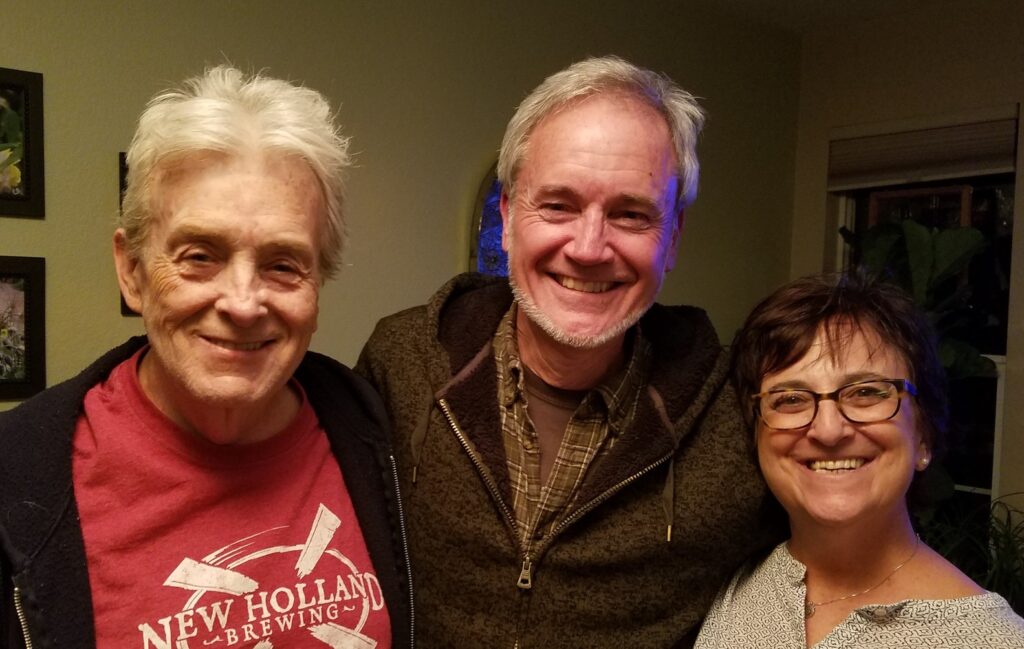
Jack Quinn
Jack suffers from basil and squamous cell carcinoma. I’ve known him for some time. For the last few years, I have been providing his oil. He’s doing well with suppositories and a topical. We have all but stopped the progression of his cancer. We’ll persevere until we do.
The dispensary that was providing Jack’s oil before, in exchange for publicity from a video claiming to have “cured” Jack’s cancer, had finally pulled their support. I began making his oil only because Jack could not afford it and I couldn’t bear to think of him going back under the knife needlessly.
You see, Jack had suffered with this affliction for over 30 years. Over the last ten years, every three months he has had two to three lesions cut off and another three to four burned off with liquid nitrogen. I did a video interview with him. At one point, he removed his shirt, revealing the many scars that cover his body.
It amazes me the things the human body can endure. Further, I am truly dumbfounded by the miraculous healing that lies only slightly beyond the reach of most patients.
Jack has no means to pay for his medicine – not in the amounts of concentrate that he requires. His Medicare insurance only pays for his conventional treatments. Of course, if he were to return to those conventional treatments, he would have to endure the pain and disability caused by the never-ending surgeries and toxic pharmaceuticals that have already compromised his kidneys. Like most cancer patients, his body has been ravaged by the toxic side effects of prescription drugs. Without cannabis, his long-term prognosis is not good. As long as we can provide his cannabis, he has hope.
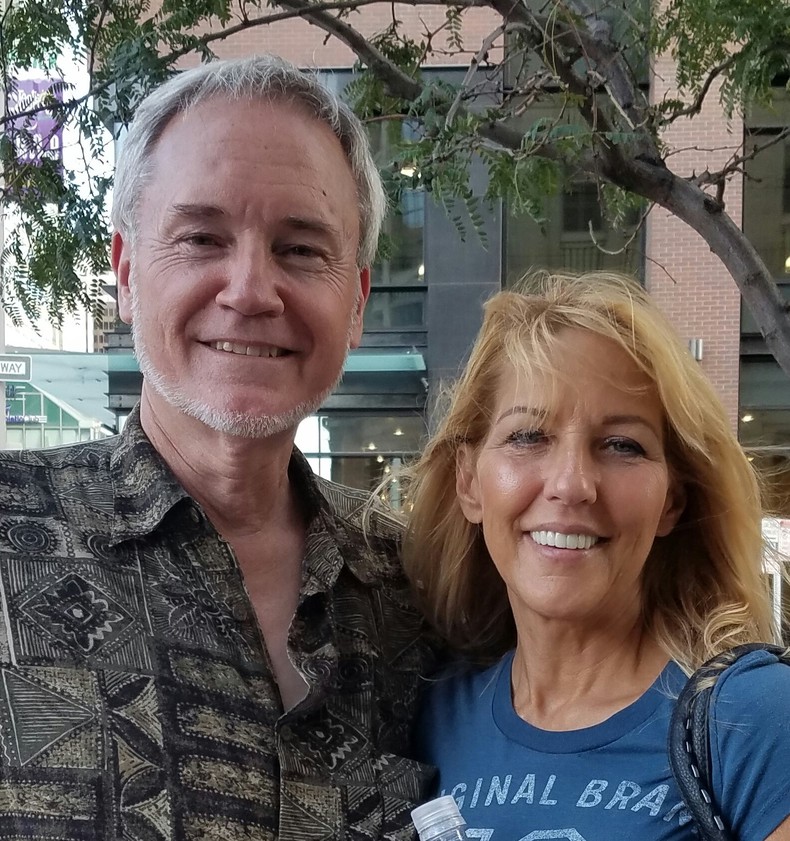
Melissa
Melissa is a native of Atlanta, Georgia. She has multiple myeloma. Just a couple of weeks before our first meeting, she had asked her doctor to put her on hospice because she could no longer adequately care for
herself. Her oncologist assured her quite emphatically that she was dying and only with rigorous doses of
chemotherapy would he be able to extend her life, but certainly not cure her. Unfortunately, with only a couple
treatments, Melissa knew, the chemo treatments would strip her of what little quality of life that she had left.
Traveling to me here in Colorado represented a considerable financial hardship for Melissa. She hasn’t been able to work since becoming ill. Fortunately, her friends helped her with a collection to make it possible.
Melissa and I discussed treatment options. I showed her how we could increase her dose quickly with suppositories. She took that to heart, moving to a full gram a day in less than a week.
After staying for a period of time, she returned home. Within a month, Melissa realized that the tumors in her breasts were gone. She called me to say that she was gaining weight and felt better than she had in twenty years. She felt so good, in fact, that she hoped to go back to work soon.
After a few months, Melissa was able to get test results from her oncologist. They showed some improvement, but her doctor was adamant, insisting that she resume her chemotherapy. He told her, “You’re going to die. That (cannabis) won’t save you.”
Then Melissa asked him, “If I were to see another oncologist with these reports in hand, would he say I have cancer?”
To which her specialist replied, “No.”
Melissa’s myeloma was more resistant than some. Though she was feeling good, and more active than she had been in years, the cancer persisted.
Melissa ran out of oil. For several months, her health spiraled downward. I knew if she didn’t find a source, she would die.
Eventually, an “angel” stepped in enabling her to restart her Cannabis therapy, if only for a time. Once on the oil, she was able to tolerate the chemo treatments. She began gaining weight, and most importantly, was again making healthy red blood cells.
This past year, Melissa traveled to her daughter’s home in Florida. While there, her daughter committed suicide. Devastated beyond belief, Melissa was left with a custody battle for both of her grandchildren – one, profoundly disabled.
Though struggling, and once again without FECO, Melissa was heartbroken, but determined. She returned to school and was resolute in providing for herself and the little ones.
With her cancer returning, she knows the coming months will be the challenge of her life. Whether she will be able to endure until her financial situation improves, is anyone’s guess.
She calls often. We do our best to encourage each other.
Florida has a medical cannabis program, albeit very limited and costly – even cost-prohibitive for most who are poor. Such is the problem when bigots and prohibitionists, design the program. With little understanding, and really no concept of Cannabis as anything other than a recreational street drug, lawmakers base their decisions on the whims of law enforcement.
Melissa finally was able to get a medical cannabis card. Unfortunately, paying the ridiculous prices demanded by Florida’s few dispensaries represents a whole other challenge. What’s more, most products applicable for medicinal consumption are heavily diluted. Patients often pay greatly inflated prices for what is largely carrier oils, ineffectual for treating serious illness. Without safeguards that actually PROTECT the Cannabis consumer, most are merely fodder for the profiteers.
It’s difficult sustaining Cannabis therapy long- term. A gram of cannabis trim oil can run as much as $65 or more in dispensaries, if it can be found at all. Cancer patients can remain at a gram of oil per day for two to four months or longer. It’s not difficult to realize what little provision there is for our poor and infirmed.
The initial treatment for cancer, the first 60 grams can mean the difference between life and death. But even for those who have seen the miraculous, their ordeal is not yet over. All patients will have to find a way to sustain a maintenance dose indefinitely.
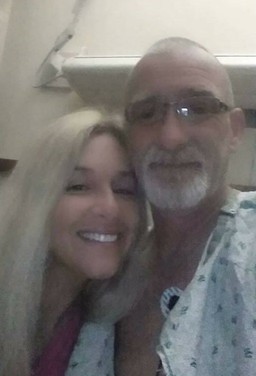
Darren Miller
Darren, an Illinois native woke up one morning with an intense pain in the center of his chest. An otherwise very healthy fifty-plus year old man, he needed a good excuse to visit the Emergency Room.
Doctors there at a St. Louis hospital did scans and quickly informed Darren and his wife that he was in the midst of Stage 4 lung cancer. Not only that, the cancer had broken into his pericardium. His heart sack was full of cancerous fluid. He was in congestive heart failure. He was dying.
The doctors drained the fluid, but it quickly returned. They decided to perform a dangerous procedure on Darren that is reserved for only those they know, with some degree of certainly, will die, and soon. They injected talc into the pericardium to stop the influx of fluid.
The procedure worked. It is known that a patient can live without a pericardium, but unfortunately, this procedure drew up Darren’s heart sack like shrink-wrap around his heart. Complications are not known since patients with cancer this advanced normally perish soon after their disease has reached this stage.
It was very shortly there after that Darren contacted me. He had heard about cannabis oil therapy and needed to know if this treatment might be effective for him. We spoke at length over the phone as I described the Endocannabinoid system and its purpose.
The Endocannabinoid System (eCS) is our most important endocrine system. It is responsible for homeostasis throughout the body. Our eCS is actually responsible for basic cell health by modulating the chemicals responsible for cell repair, waste removal and the eradication of unhealthy cells (like cancer cells).
Speaking by phone, Darren asked me regarding his chances and I was honest with him. I could tell that he was a fighter and fortunately, they had the resources and drive to pursue cannabis therapy with uncommon diligence.
Arriving at my home in Colorado Springs, I discussed Darren’s treatment options with him and his wife Amy. As I shared with them, the process of making cannabis oil is not difficult, but the skill of the cook most certainly effects the outcome of the product. Darren took this to heart. Soon he was producing his own medicine.
Months later, Darren called me, to report the findings of his latest scan. He told me, “Mark. The tumors haven’t shrunk as we had hoped.”
My heart sank…but then he continued…
“They’re gone! I mean there is no cancer anywhere in my body!”
As you might have guessed, Darren is now the talk of St. Louis University Hospital. All further scans and tests have only reconfirmed his most miraculous recovery. Darren and Amy are regulars on local and national media as they instill hope in so many of similar plight.
In the two years, I have seen and counseled patients from Nebraska, Oklahoma, Missouri, Arkansas, Illinois, Michigan, Ohio, New York, Tennessee, Kentucky, North Carolina, South Carolina, Florida, Georgia, Mississippi, Louisiana and Texas. No doubt, I missed one or two – and I am only one of Colorado’s caregivers. There are others doing so much more than I.
The need is truly great. But perhaps we have falsely narrowed our scope regarding Colorado’s Cannabis industry. We have perceived it through the tainted lens of recreational use and not as science has shown us – as the remarkable healing food that it is.
Cannabis is nontoxic, and its food. A superfood by the very definition. And yet, it’s vilified purely for its euphoric characteristic, something that, in fact, is not unlike other foods. As proven here, cannabis is safe for even our most vulnerable, our children.

Jack Splitt
I have known Stacey Linn since she became involved in politics here in Colorado. For two years, I took a room in her basement after the City of Colorado Springs made the process of making cannabis oil illegal for Caregivers and patients within their city. With an ever-growing list of terminally ill patients, I could not in good conscious refuse to aid them. I was forced to put all my belongings into storage and make the move to Lakewood where I could legally continue.
It wasn’t long after relocating that I became Stacey’s son, 15 year old Jack Splitt’s Cannabis caregiver.
Jack has come to be known internationally for his namesake, “Jack’s Law”. Spearheaded by his mother, this groundbreaking legislation mandates that Colorado schools must accommodate those students that require cannabis therapy.
Jack was born with multiple debilitating and life threatening conditions, but particularly cerebral palsy and Dystonia. With both conditions quite profound, Jack had a G tube and was on life support, requiring 24 hour RN nursing care. He did not have common use of his limbs and though he could hear somewhat and understood sign language, he could only speak through a digital devise. Jack also required around the clock suctioning through his trach so he would not drown in his own body fluids.
Remarkably, he possessed an uncommon intelligence.
At the time that I began treatment, Jack’s Dystonia was causing increasingly violent lurches that involved his limbs and torso, often compromising his respiration.
Previous attempts with oral doses of CBD rich Cannabis products were marginally successful, but Jack needed the cannabinoids THC and probably CBN. Using suppositories insured that Jack would be getting much more medicine with far less euphoria.
Oral dosing presents upwards of 30% of the medicinal properties, while suppositories promise 70% +, with far less euphoria.
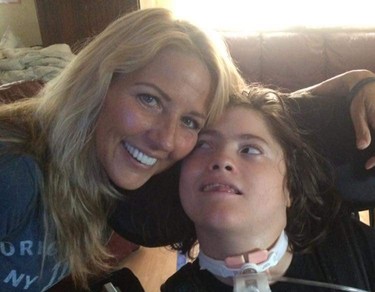
I advised a 20mg THC rich suppository 4 times a day. Increasing to 40mg quickly in the weeks that followed. Working with Jack’s nurses, I produced the Cannabis suppositories that they administered.
Jack responded quite well.
Jack’s Dystonia outbreaks became less frequent and less intense. He was able to concentrate more on his school work and actually leave home to attend school. He could once again go on outings with his nurse, classmates and family. He was beginning to enjoy life again.
While observing Jack working with his reading coach, one of Jack’s nurses approached me. She said, “Jack’s getting better. It’s because of your suppositories, and we’re on a set schedule now.”
I didn’t feel we were where we needed to be – yet, but we most certainly seemed to be headed in the right direction. Cannabis is “variations on the good”. If Cannabis could lessen Jack’s symptoms, then it could be hope for so many other children and adults afflicted with Dystonia.
My hope was that Jack’s progress would grow exponentially. We had no reason to believe otherwise.
The morning of August 24th, I awoke quite early. By 5am, I was on my morning walk. By 6:30, I was at breakfast in a local restaurant. It was then that I received word of Cassidy’s unexpected passing from her father. Amid my reeling from this news, I realized that I still had to meet with a gentleman who had flown in from England. I was scheduled to show him how to make oil.
Marc’s father had lung cancer. He planned to spend the next three days observing and participating in the process so that he could return home and preserve his father’s life.
It was afternoon, Marc and I were on the back deck where I was demonstrating the part of the oil making process where I extract the alcohol. I always instructed oil makers to boil off alcohol in a well ventilated area. Using a water purifier, like a Green Oil Machine is quite safe for this step. It’s enclosed and allows for reclaiming most of the alcohol quite safely.
Out of the corner of my eye, I could see the front door across the kitchen, through the rear slider. Quite suddenly, I glimpsed firemen entering our home and I knew, of course, it had to be about Jack. Motioning for Marc to stay put, a quickly entered the kitchen. There I was met by Jack’s nurse who informed me quite bluntly, “ Jack’s dead.”
In shock, I felt myself move backwards as if someone had struck me in the chest.
I responded, “When did this happen?”
To this, the nurse seemed to state without emotion, “I don’t know. Could have been as much as two hours ago.”
Much of what was to follow continues to be a blur. Jack was like a grandson to me. He was more special than most will ever know. I believe I may have suffered shock, because I seemed to go into a daze. I believe I followed the firemen down the hall to Jack’s room. Though it’s like a dream, I have this image in my head of seeing Jack laying diagonally across his bed. I can’t shake that picture. I have a heaviness in my chest when I think about it.
Police officers and detectives filled our home, milling about through every room. After being interviewed very briefly by a detective, my friend, Ron Niehouse and I were escorted out front to the wheelchair ramp where others were standing and left without explanation. No coats and cold – no idea if we would be there for fifteen minutes or two hours. No one was talking.
Four hours later, about 8:30pm, we were informed that we would not be allowed to reenter our home. I was forced to get hotel accommodations.
Ron, an old friend and colleague, has helped the sick in California for a number of years. He was also a journalist. Years ago, we joined forces to publish the Medical Cannabis Journal magazine. He came here to Colorado to observe my work with the terminally ill. Taking a room next door to me downstairs, Ron and I contemplated ways that I could improve my work and reach the masses, particularly the poor, with the miraculous results I had experienced.
Unfortunately, Ron was innocently swept up in the political insanity that would soon ensue.
To a caregiver, there are few things more devastating than witnessing the loss of one you care for, let alone personally experiencing the injustices that must be endured to care for them.
My focus has always been on easing suffering, but most certainly, to improve the quality of life for those beset with terminal illness. Aggression was the furthest thing from my mind in my consideration of the law. I had no idea why we were being treated this way. Everyone in our home was scared and unable to grieve. The actions of Lakewood Law enforcement were threatening. Suddenly, I was no longer being treated as a caregiver, but now for some unspoken reason – in their eyes – I was a criminal.
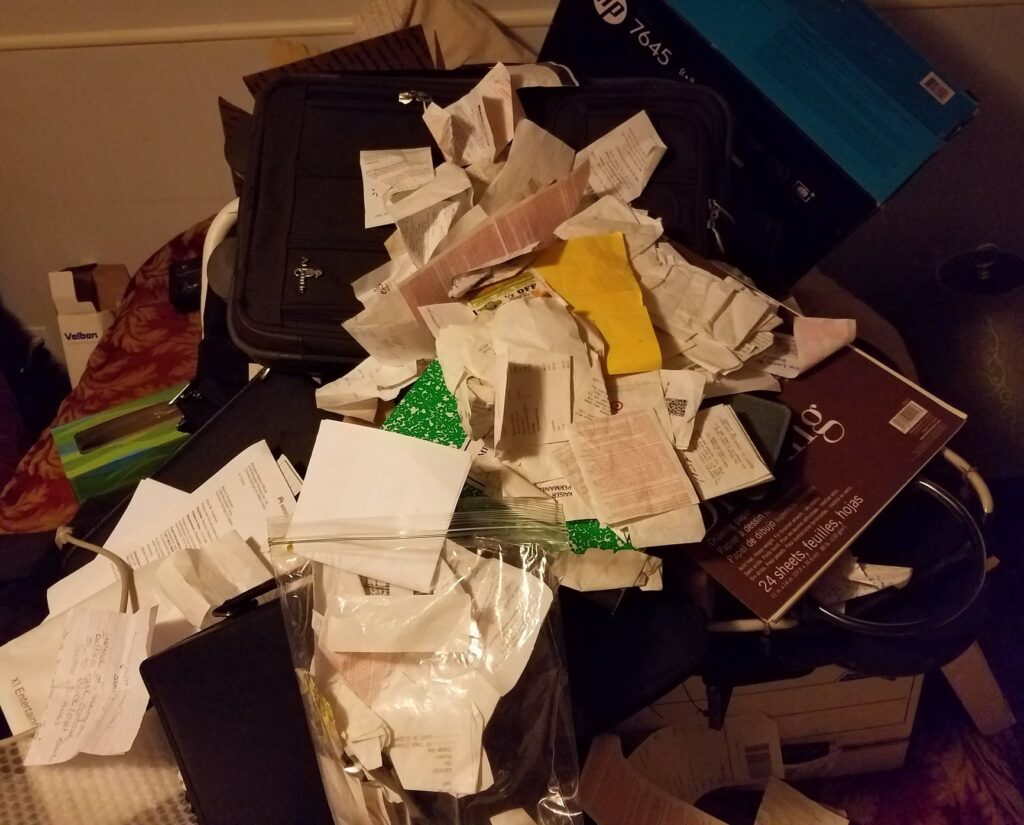
The evening of the second day, I received word from Stacey that our home had been cleared to reenter. Ron and I gathered our things and returned home.
At first entering, everything seemed reasonably normal. Then Ron and I went downstairs. Opening the door to my bedroom, I realized that the police had ransacked my room. Though they apparently searched upstairs as well, it was obvious that it wasn’t done with the level of maliciousness as they inflicted on us downstairs, particularly my room and that of Ron’s.
My personal papers and pictures were scattered about the floor amid clothing and other articles that had been obviously walked on after emptying my drawers and shelves. My computer equipment and camera equipment were pulled from their cases and scattered on the bed while the contents of drawers and boxes were dumped out on top of them without concern for their fragility or expense.
Then I began to realize just how much had been taken. Bottles of tincture – what I was reducing in my demonstration outside when this began – were gone. That, I had hoped, would have been more than enough for one and a half cancer runs. And they took one of my Green Oil Machines. I couldn’t imagine why.
They took the trim; the scrap plant material that I recently received from a well-meaning patient – two or three pounds of moldy, unusable Cannabis that was destined for the compost pile. But it didn’t stop there. Even though there were three adults and one teen under roof who were legal cannabis patients, all of our private Cannabis medication was taken, as well.
The Lakewood police even went so far as to take my personal safe, containing old family pictures, personal papers and roughly seven thousand dollars or so of what remained from my legal settlement with Doe Run Lead company; the company that made me ill over twenty-five years ago. I had received my final payment just the month prior.
I requested that since they took my safe, to please not destroy the lock. I furnished the combination and only asked that my attorney be present when it was opened. I also provided the documentation that accounted for the cash within the safe as in fact being a part of a legal settlement.
I was informed by my attorney that he was not allowed to be present for the opening of my safe and that it had in fact been “transported to an undisclosed location to be opened.”
One of my attorneys told me that the tactics used by local police are identical to home invasions he took part in while in Afghanistan during his military service. Noting that some of those present at my home were no doubt Veterans, it’s obvious that Colorado police departments are using our former Vets to militarize local police departments and augment their procedures to include terror.
I was told that municipal police often choose to ignore state law regarding Cannabis, since Civil Forfeiture seizures are easy money for them. When they hear Cannabis, the first thing they do is look for money. It doesn’t matter where it came from.
He went on to confirm that there were more Cannabis incidents with law enforcement here in Colorado than ever in history, and they’re increasing exponentially.
The actions perpetrated by Lakewood police were little different than tactics used across this country. Civil forfeiture accounts for a windfall of over 12 billion dollars a year for law enforcement.
This was not a police investigation. This was “legal” armed burglary.
Over the many months that followed, Ron and I were left wondering daily – if any moment, in fact, we would be charged… when we might be charged and why? Why, when I truly felt I was operating under the law, legitimately and quite publicly treating the terminally ill… why they were treating us so? No effort to contact me was ever made by Lakewood Police or the Jefferson County Task Force.
On Friday, March 24th I was served papers via mail that law enforcement was in fact laying claim to the cash that was in my safe. When I informed my attorney, he assured me that since they were seeking Civil Asset Forfeiture, they were not likely to pursue criminal charges.
On Monday, March 27th, 2017, I came home to find three Lakewood Police officers waiting for me with a warrant for my arrest.
Two officers stood quietly with their hands behind their backs, looking largely at the ground while the arresting officer quickly expounded assurances. Apologizing no less than four times, he commented on how he admired my work and felt “as if he were arresting his dad”.
I asked the arresting officer if I could medicate before leaving for the jail. He told me that he could not allow me to do so. I reminded him that I was a registered medical cannabis patient and require cannabis to live, but he was adamant, stating regulation would not allow him to permit it since he would have to witness me doing it.
I was handcuffed and placed in the back of a patrol car. Later while I was being booked, I told the arresting officer that I had planned to offer my educational services to the Lakewood Police, so they would have greater understanding on how to treat a medical cannabis patient. His words, “ We need more education.”
I was given orange scrubs and forced to change before an officer – yes, spreading my cheeks for the guard so he could say the 60 year olf wasn’t packing “contraband” into the jail.
My things were bagged and cataloged. I was finger printed and photographed. I found myself in a holding room with eleven others much younger than I. Everyone fixated on a television mounted on the wall that was abnormally loud. Consecutive episodes of “Breaking Bad” were playing out. I witnessed literally four hours of “Breaking Bad” along with multiple theatrical homicides.
I was told by other inmates that I, “…was now the property of the state of Denver.”
I was given a sack lunch that was comprised of a small cup of very viscus chicken salad, a very hard roll, a cookie and a carton of orange drink. I later threw most of it in the trash. I was quite sick of my stomach. Hours passed.
I was then filed out to another holding area, issued a mattress, sheets, toothbrush, toothpaste, comb and cup, and sent two by two into rooms not much larger than a walk-in closet. I was fortunate in that my cell mate was not at all violent.
I tried to rest on the plastic shelf that was my bed. Slatted windows above me offered a glimpse of the mountains, and in that, some reprieve from the horror I was experiencing.
After a few hours, we were led out into an outer room where dinner trays were slid to us through slatted windows from other inmates. I received a tray with, I think meatloaf in a small hard ball, perched atop a spoon of mashed potatoes. Canned sauerkraut and slaw were also on the tray. Stale chocolate cake was for desert. To drink, sweet tea in my plastic cup.
I tried to eat as much of the meat and mash potatoes as I could choke down, but I was so sick and my head was in a vise. It had been quite some time since I medicated. Without Cannabis, I chance a severe migraine, possibly a seizure, particularly under stress.
After another few hours, we were again filed out – this time, instructed to bring all of our things, including our mattress. We were sent down hallways to elevators to more hallways and elevators and into a large holding area. We were issued yellow scrubs and firmly given the rules of conduct for this space.
Then we entered a much larger, open area with many inmates milling about, exercising, playing cards and laying on their bunks.
I was told to go to a specific bunking area where I would be issued a “boat”, since all of the bunks were taken. Once there, another inmate brought me what looked like a plastic gurney, a “boat”. This was the support for my mattress. I was told it was easier to get out of if I placed it on the floor upside down.
I changed into my “yellows” and began making my bed.
An old man (maybe mid 70’s) who was sitting on a lower bunk nearby, began telling how things worked in this part of the jail. I asked him how long he had been there. He told me “…longer than my 90 days”. Then under his breath, he said, “Since last November.”
I later heard of inmates being released after literally years in Jefferson County Lockup.
Just then, the jailer came to me and said my Bond had finally come through. I was to turn in all my things and report to the outgoing processing area. I was sent through remote – locking/unlocking doors and down corridors, by myself. Elevator doors opened before me. Upon my destination, I was met by an abrupt guard, who ordered me to stand against a wall. After eight or so minutes, I was allowed to enter a small room where I was given a plastic bag with my clothes. I dressed, then I was instructed to stand against another wall before being ushered to a bench where I waited my turn to sign out and be given another bag with my wallet, belt and so on. A credit card was given to me for the cash I had in my wallet. To date, I have not been able to use the card to access the $50 that had been taken.
I was told that I had to appear with my attorney in ten days for “arraignment”.
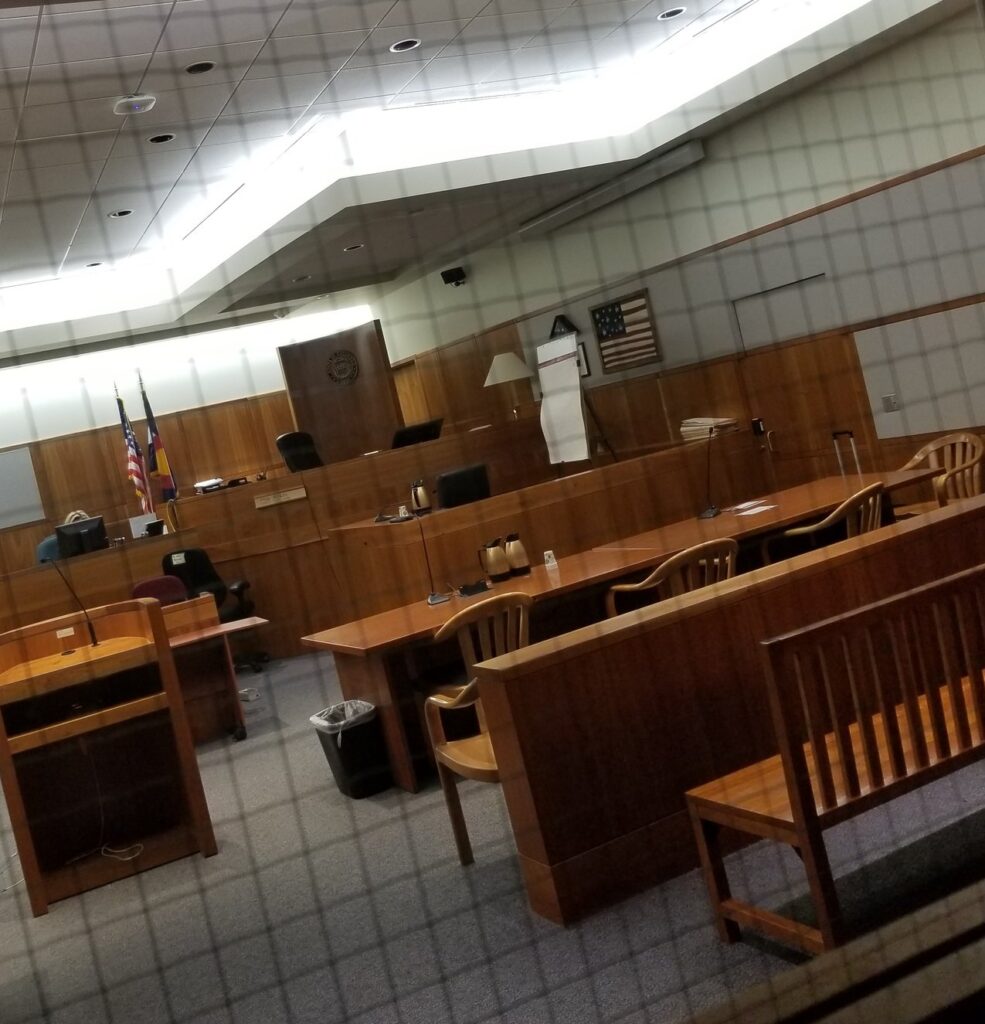
After finally being able to call my former business partner, I learned that even though she was able to assemble the $2500 for the $25,000 Bond I was forced to incur, we required someone who either owned their own home or worked a full time job.
I marveled at the thought of how anyone of modest means could ever escape this twisted and corrupt system.
Fortunately, one of my patients, Jack Quinn drove down and paid the Bond. That was around 6:30pm. I wasn’t released until 10:30pm. My attorney later told me that I was fortunate. Jefferson County jailers operate on their own time and often delay releases just for spite. Inmates had told me the same.
I called an Uber to get me home.
I am dumbfounded. I, like millions of Americans across this country, believed cannabis programs were created to first and foremost ease the suffering of our chronically and terminally ill. In fact, I regularly witnessed healings from Cannabis and felt this work exemplifies the purpose of Cannabis medical efficacy.
How is it that amid promises of safe, legal access, we have taken these our most vulnerable and those who care for them and placed them directly in harm’s way? Why is it tolerable to terrorize those who are already beset with incredible tragedy and inflict harsh penalties on those who seek to preserve the terminally ill?
As caregivers in the state of Colorado, we are continually faced with further restrictions on the work we do. Lawmakers and law enforcement are making decisions, drafting policy and enforcing detrimental rules without an accurate understanding of Cannabis and its true nature or therapeutic benefit, let alone the glaring truth that Cannabis is scientifically proven to be nontoxic.
Knowing all this further adds to the shame every time a patient is persecuted. For those of us who know the truth, Cannabis is truly the safest option for virtually everyone, over pharmaceutical drugs. The hypocrisy, and most certainly the larceny perpetrated on the medical Cannabis user is quite glaring.
We are amid a crisis. Our only hope to avoid further suffering and the needless loss of human life is to approach soberly, honestly and with conviction what lies before us. Careful attention needs to be given to the humanity that is often hidden behind these issues, as well as the truth that is so conveniently omitted when Cannabis and its social ramifications are examined.
- Cannabis is nontoxic. Neglecting this truth in no way diminishes it’s weight. It represents no legitimate harm to anyone – except, of course, in the way it has been contrived directly due to prohibition.
- Cannabis is food. Cannabis has been food and medicine for the human race for over 25,000 years. This not only proves its efficacy overwhelmingly, it ensures its place as a vital nutrient. Cannabis provides nourishment to our most important endocrine system, our Endocannabinoid system. It is food in its truest sense.
It is because of our close association with this plant and its sustenance that we are seeing miracles. It is my hope that through the work that we are doing, all will see and seek to preserve this needful humanitarian outreach and help us to open the doors to educational programs for those who shape the laws effecting our most vulnerable and most certainly, those who enforce them.
We don’t need greater restriction on access, but rather, a legitimate understanding of how Cannabis has and will impact our world.
Please join with me in protecting the civil rights of our chronically and terminally ill and those who care for them, their caregivers. Help us see that truth reins here in Colorado and throughout our great nation. Please help us by making our voices heard.
Mark Pedersen
[email protected]
